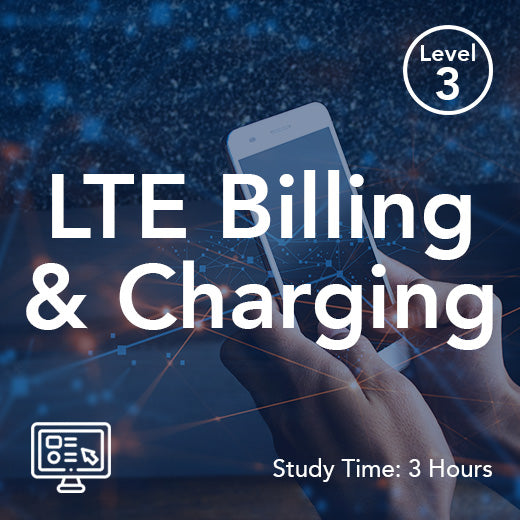In che modo il 5G influisce sulla scalabilità della banda larga mobile?
- , di Stephanie Burrell
- 2 tempo di lettura minimo
L’introduzione della tecnologia 5G ha comportato un cambiamento significativo nel panorama della scalabilità della banda larga mobile. Con la sua promessa di velocità più elevate, minore latenza e maggiore capacità, il 5G ha il potenziale per rivoluzionare il modo in cui utilizziamo e interagiamo con i servizi mobili a banda larga.
Uno dei modi principali in cui il 5G influisce sulla scalabilità della banda larga mobile è attraverso la sua capacità di supportare un numero maggiore di dispositivi connessi. Con la proliferazione dei dispositivi IoT e la crescente domanda di connettività ad alta velocità, le reti 4G tradizionali spesso non sono in grado di gestire l’enorme volume di traffico dati. Il 5G, d’altro canto, è progettato per supportare un numero enorme di dispositivi connessi, rendendolo ideale per il crescente numero di applicazioni IoT e dispositivi intelligenti.
Oltre a supportare più dispositivi, il 5G offre anche velocità significativamente più elevate rispetto ai suoi predecessori. Con velocità di picco fino a 10 Gbps, il 5G è in grado di fornire connessioni a banda larga ultraveloci in grado di supportare applicazioni ad uso intensivo di larghezza di banda come lo streaming video 4K, la realtà virtuale e la realtà aumentata. Questo aumento di velocità non solo migliora l’esperienza dell’utente, ma consente anche nuovi casi d’uso che prima non erano possibili sulle reti 4G.
Inoltre, la minore latenza del 5G è un altro fattore chiave che influisce sulla scalabilità della banda larga mobile. La latenza si riferisce al tempo impiegato dai dati per viaggiare dal mittente al destinatario e una latenza inferiore è fondamentale per applicazioni in tempo reale come giochi online, videoconferenze e veicoli autonomi. Riducendo la latenza fino a 1 millisecondo, il 5G consente un’esperienza utente più reattiva e interattiva, consentendo di supportare una gamma più ampia di applicazioni e servizi sulle reti mobili a banda larga.
Un altro aspetto del 5G che influisce sulla scalabilità della banda larga mobile è la sua maggiore capacità. Grazie alla capacità di supportare più dispositivi connessi, velocità più elevate e latenza inferiore, le reti 5G hanno una maggiore capacità di gestire la crescente domanda di traffico dati mobile. Questa maggiore capacità è essenziale per supportare la crescita esplosiva del consumo di dati e l’emergere di nuove tecnologie come le città intelligenti abilitate al 5G, i veicoli connessi e le applicazioni IoT industriali.
Nel complesso, l’introduzione della tecnologia 5G ha il potenziale di avere un impatto significativo sulla scalabilità della banda larga mobile consentendo velocità più elevate, minore latenza, maggiore capacità e supporto per un numero maggiore di dispositivi connessi. Man mano che le reti 5G continuano a diffondersi in tutto il mondo, possiamo aspettarci di vedere una trasformazione nel modo in cui utilizziamo e interagiamo con i servizi mobili a banda larga, sbloccando nuove possibilità e guidando l’innovazione nell’economia digitale.
Uno dei modi principali in cui il 5G influisce sulla scalabilità della banda larga mobile è attraverso la sua capacità di supportare un numero maggiore di dispositivi connessi. Con la proliferazione dei dispositivi IoT e la crescente domanda di connettività ad alta velocità, le reti 4G tradizionali spesso non sono in grado di gestire l’enorme volume di traffico dati. Il 5G, d’altro canto, è progettato per supportare un numero enorme di dispositivi connessi, rendendolo ideale per il crescente numero di applicazioni IoT e dispositivi intelligenti.
Oltre a supportare più dispositivi, il 5G offre anche velocità significativamente più elevate rispetto ai suoi predecessori. Con velocità di picco fino a 10 Gbps, il 5G è in grado di fornire connessioni a banda larga ultraveloci in grado di supportare applicazioni ad uso intensivo di larghezza di banda come lo streaming video 4K, la realtà virtuale e la realtà aumentata. Questo aumento di velocità non solo migliora l’esperienza dell’utente, ma consente anche nuovi casi d’uso che prima non erano possibili sulle reti 4G.
Inoltre, la minore latenza del 5G è un altro fattore chiave che influisce sulla scalabilità della banda larga mobile. La latenza si riferisce al tempo impiegato dai dati per viaggiare dal mittente al destinatario e una latenza inferiore è fondamentale per applicazioni in tempo reale come giochi online, videoconferenze e veicoli autonomi. Riducendo la latenza fino a 1 millisecondo, il 5G consente un’esperienza utente più reattiva e interattiva, consentendo di supportare una gamma più ampia di applicazioni e servizi sulle reti mobili a banda larga.
Un altro aspetto del 5G che influisce sulla scalabilità della banda larga mobile è la sua maggiore capacità. Grazie alla capacità di supportare più dispositivi connessi, velocità più elevate e latenza inferiore, le reti 5G hanno una maggiore capacità di gestire la crescente domanda di traffico dati mobile. Questa maggiore capacità è essenziale per supportare la crescita esplosiva del consumo di dati e l’emergere di nuove tecnologie come le città intelligenti abilitate al 5G, i veicoli connessi e le applicazioni IoT industriali.
Nel complesso, l’introduzione della tecnologia 5G ha il potenziale di avere un impatto significativo sulla scalabilità della banda larga mobile consentendo velocità più elevate, minore latenza, maggiore capacità e supporto per un numero maggiore di dispositivi connessi. Man mano che le reti 5G continuano a diffondersi in tutto il mondo, possiamo aspettarci di vedere una trasformazione nel modo in cui utilizziamo e interagiamo con i servizi mobili a banda larga, sbloccando nuove possibilità e guidando l’innovazione nell’economia digitale.










![[FN06sh] 5G AVANZATO (su richiesta)](http://wraycastle.com/cdn/shop/files/5G-Advanced.jpg?v=1741086243&width=645)












